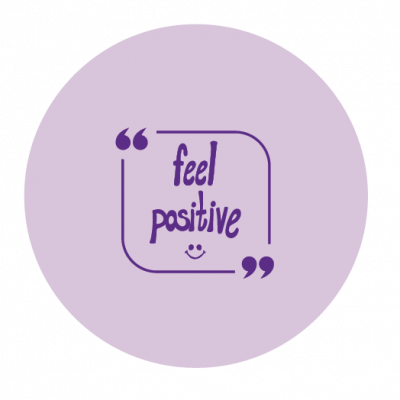Covid-19 is a new infectious disease. It affects the respiratory system. You may be worried about how the disease will progress and how people may be affected. Changing guidelines, rolling news updates and social media can make this anxiety worse.
You may be experiencing anxiety, uncertainty, difficulty sleeping, and finding it hard to assess the risk or danger for you and the people you love. It is understandable and normal to have a range of emotional responses to the spread of Covid-19. Anxiety is a natural response that will help to keep us safe in some situations. Everyone experiences anxiety at some point in their lives. But when things seem difficult to control and uncertain, we sometimes respond in ways that fuel anxiety. It can feel overwhelming.
If you struggle with anxiety, then news about Covid-19 could be making you feel worse. This leaflet contains some helpful information to promote your wellbeing.
Covid-19: the challenges of ‘not knowing’
The ‘unknownness’ of the situation is something that people may find upsetting about Covid-19. We have evolved to prefer things that are predictable. This helped our cave-dwelling ancestors when it came to keeping safe. In modern life this can lead us to feel anxious when things are unpredictable.
Some people are fairly relaxed about uncertainty. Others find uncertainty uncomfortable, distressing or even intolerable. If something is uncertain, we may feel and act as though it is unsafe.
This can make us more anxious and less certain about how best to react. It can feel tempting to seek certainty and feel safer by checking the news and social media, and stockpiling items. This checking and taking unnecessary precautions may actually make us feel more uncertain. Or we might ignore guidance and keep away from reminders that make us worry.
Tips to manage uncertainty and distress
- Get news updates at specific times and from official sources rather than constantly getting updates throughout the day.
- Follow official advice to make a positive difference. Try reducing checking behaviour and taking unnecessary precautions.
- Act when you need to act. Anxious predictions about what may happen and acting too soon are often unhelpful.
- Talk to others or write things down. Share how you feel.
- Soothe your mind and body and build in activities that help you relax
Disturbed sleep
Disturbed sleep is known to be related to healthcare concerns and previous illness outbreaks. Not sleeping well can also feed into worry.
These tips can help:
- Don’t drink caffeinated (tea/coffee) or alcoholic drinks within four hours of going to bed.
- Exercise is good for our physical and mental health, but it’s best not to do any exercise within two2 hours of going to bed, as this can keep us awake.
- Try to decide on a regular set time for getting up every morning, seven nights a week.
- Go to bed only when you feel tired enough to go to sleep.
- Ensure that your bedroom is set up well for sleep: try to keep the room dark, cool, airy and quiet.
- Try to keep electronic devices (e.g., phone, laptop, clock) out of the bedroom.
- Use the bed for sleep and sex only.
If your sleep is disturbed, then please access this link for further advice: NHS Sleep Self Help Guide.
NHS Sleep guideIf you are self-isolating
We know this can be tough. You may feel guilt, anger, fear, boredom, and loneliness. On top of that there may be worries about your income, difficulty sleeping, sadness, and missing contact with people.
Some tips:
- Maintain communication with others for example using video calls, smartphone apps, and email.
- Engage family and friends in supporting you to self-isolate – can they leave food, things to read or look at on the doorstep? You might get the opportunity to repay the favour in the future.
- Try to stay active and move around your house; do exercise videos, dance routines, cleaning, DIY.
- Try to engage with activities that are important to you. Try a new hobby. Mindfulness is an approach which can help us tolerate distress.
- Try an app such as ‘Headspace’, ‘Calm’ or ‘Stop, Breathe and Think’.
If you have been diagnosed with Covid-19
You may be experiencing anxiety, fear, guilt, or worry about symptoms and recovery. Anxiety and respiratory symptoms can interact with each other because some of the physical signs
can be the same. For example, breathlessness, feeling hot and sweaty and having a tight chest. The British Lung Foundation (www.blf.org.uk) has some helpful information about managing respiratory illness and anxiety on their website.
Remember that it is normal to feel anxious or worried in challenging times. Hopefully using some of these strategies and resources can help to keep it feeling manageable.
Current advice
Telephone: NHS 111
NHS COVID-19 GOV UK COVID-19Organisations such as OCD UK (www.OCDuk.org), Mind (www.mind.org.uk) and Anxiety UK (www.anxietyuk.org.uk) have helpful and specific suggestions on their website for people with an existing anxiety disorder.
For further information
Contact details
PALS (Patient Advice and Liaison Service) for help, advice and information about NHS services. You can contact them on freephone 0800 032 02 02, e-mail [email protected] or text to 0781 550 0015.
Useful websites
If you would like further information about health conditions and treatment options, you may wish to have a look at the NHS website at www.nhs.uk
If you would like to find accessibility information for our hospitals, please visit https://www.accessable.co.uk
Information produced by Layla Mofrad (Cognitive Behaviour Therapist, Talking Helps Newcastle) and Dr Ashley Tiplady (Clinical Psychologist, Newcastle Upon Tyne Hospitals NHS Foundation Trust)
